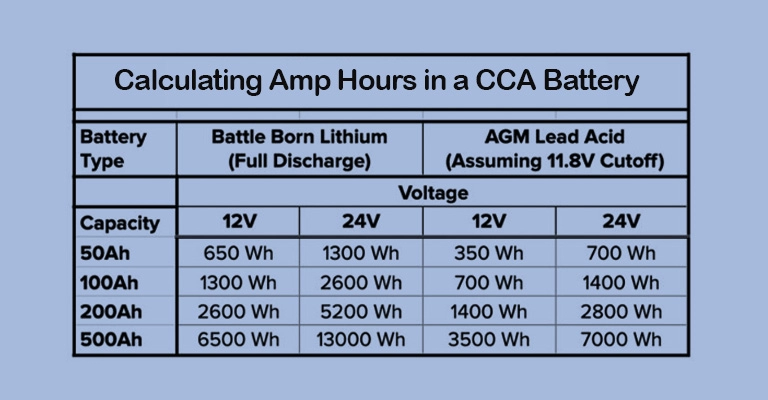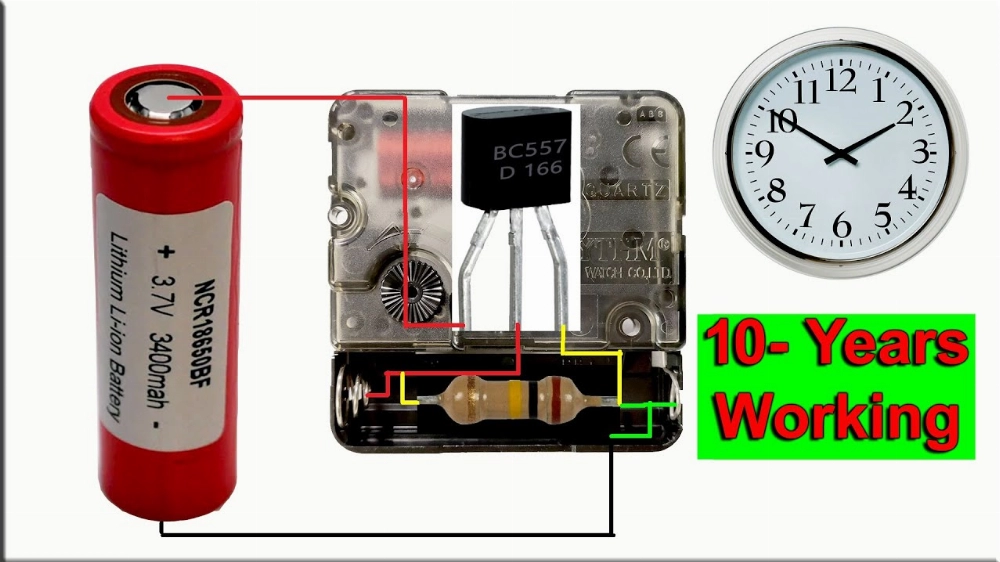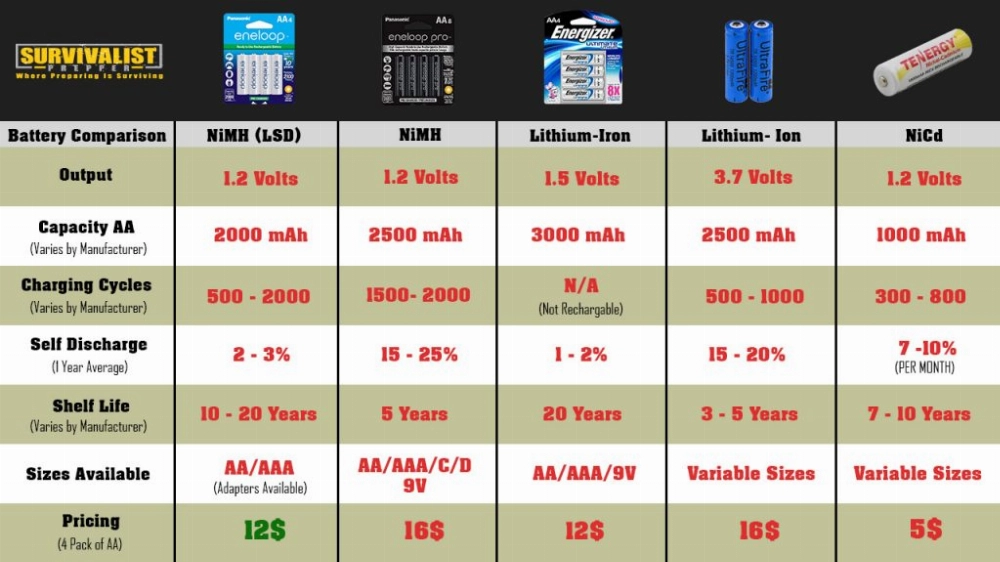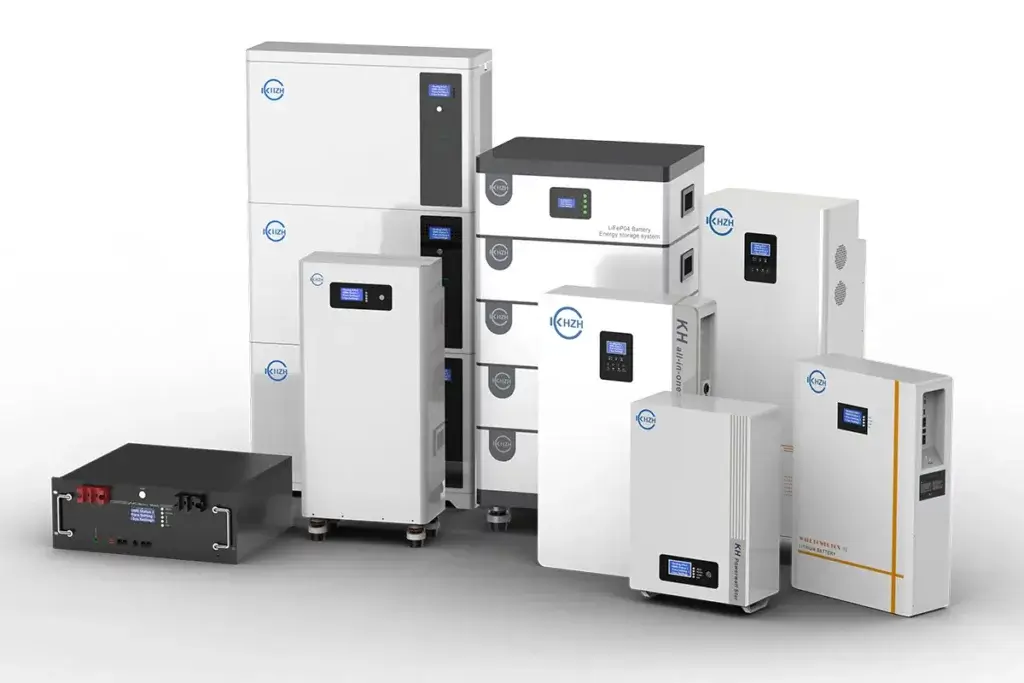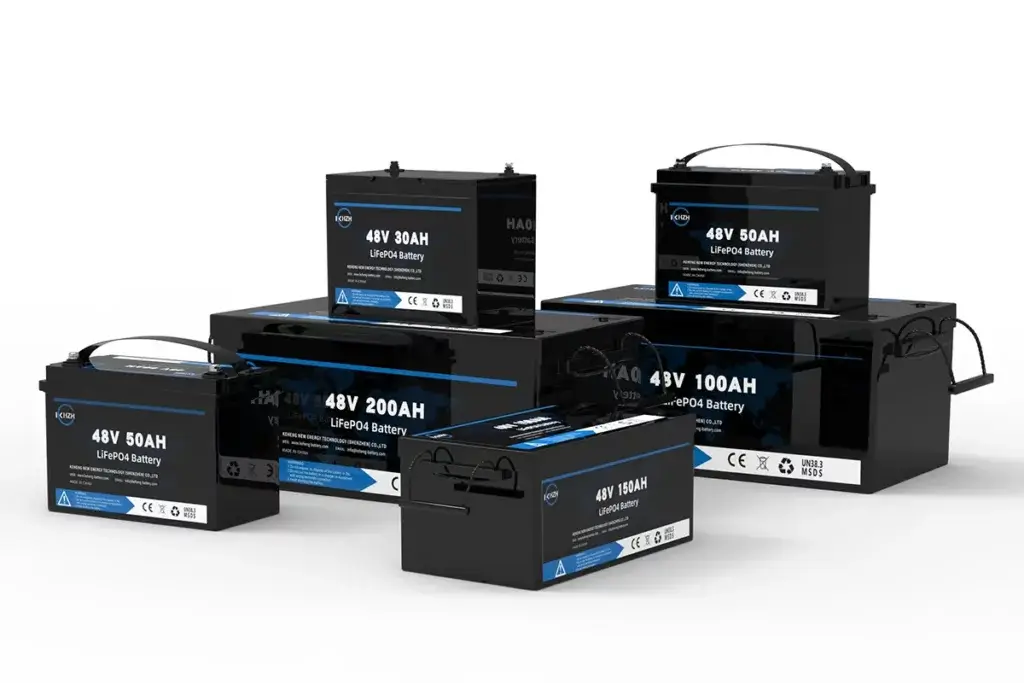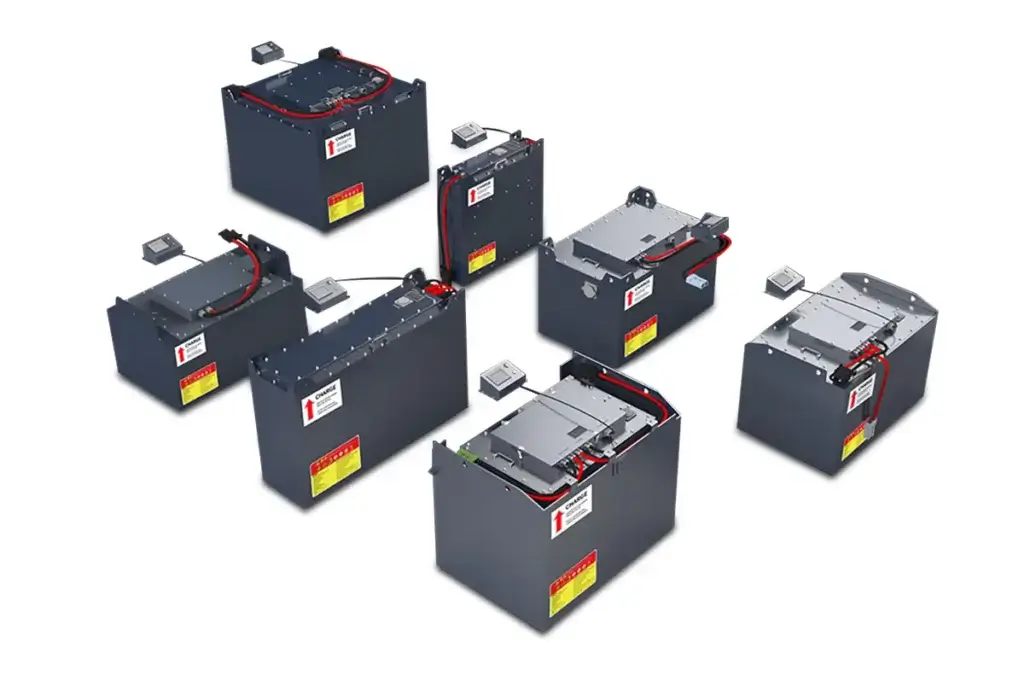Selecting the Right Battery for Your Alarm Clock
Selecting the correct battery for your alarm clock is essential for ensuring reliable and efficient performance. Given the variety of battery types available, understanding their differences is crucial for choosing the one that best suits your needs. This guide will walk you through selecting the best battery for your alarm clock, covering different battery types, key factors to consider, and helpful maintenance tips.
Part 1: Types of Batteries Available for Alarm Clocks
The battery type used in your alarm clock significantly affects its performance and longevity. Here are the most common types of batteries used in alarm clocks:
Alkaline Batteries
Alkaline batteries are the most common choice for alarm clocks due to their availability and cost-effectiveness. They provide a good balance between performance and cost, although their lifespan may be shorter than other battery types. Alkaline batteries are ideal for devices that need moderate power consumption.
Lithium Batteries
Lithium batteries are an excellent choice for alarm clocks that require consistent performance. Compared to other types, they have a longer shelf life and greater reliability, making them ideal for users prioritizing battery longevity. Although more expensive, lithium batteries can last several times longer than alkaline batteries. Their higher energy density allows them to store more energy in a smaller size, making them ideal for compact devices. For more insights into lithium battery technology, visit our detailed exploration of 18650 battery specs.
Nickel-Metal Hydride (NiMH) Batteries
NiMH rechargeable batteries are an environmentally friendly and cost-effective long-term choice. Although they have a lower energy density than lithium batteries, NiMH batteries are well-suited for those who prefer rechargeable solutions. NiMH batteries can be recharged multiple times, making them particularly suitable for users who frequently replace batteries.
Nickel-Cadmium (NiCd) Batteries
Due to environmental concerns, NiCd batteries are now less common, but they can still be found in some alarm clocks. They are rechargeable and perform well in low temperatures, but they suffer from the “memory effect” (a phenomenon that reduces capacity over time), which can reduce their capacity over time. This makes them less suitable for long-term use compared to newer battery technologies.
Sealed Lead Acid (SLA) Batteries
SLA batteries are typically used in larger alarm systems, which are not usually found in standard alarm clocks. These batteries offer superior performance and a longer lifespan for more complex systems, making them ideal for advanced alarm systems requiring a backup power source.
Part 2: Factors to Consider When Choosing a Battery for Your Alarm Clock
Selecting the right battery for your alarm clock requires considering several important factors to ensure optimal performance:
Battery Type
As mentioned earlier, each type of battery offers different advantages and disadvantages. Choose the battery type that best suits your usage habits and personal preferences.
Capacity
The capacity of a battery, typically measured in milliampere-hours (mAh), indicates how long it can power your alarm clock. A higher capacity battery allows your alarm clock to run longer, making it more suitable for frequent use. For example, a battery with a 2000 mAh capacity will generally last longer than one with a 1000 mAh capacity under similar conditions.
Voltage
Ensure the battery voltage matches your alarm clock’s requirements. Using a battery with an incorrect voltage can damage the clock. Most alarm clocks typically require 1.5V or 9V batteries, so checking the specifications is crucial.
Shelf Life
If you don’t use your alarm clock frequently, it’s best to choose a battery with a longer shelf life. For example, lithium batteries can last for several years without losing their charge, making them particularly useful for infrequently used emergency clocks.
Rechargeability
If you’re looking for an environmentally friendly option, rechargeable batteries are a great choice. Although their initial cost may be higher, rechargeable batteries can save you money in the long run and are more environmentally friendly.
Brand Reliability
It’s always wise to choose batteries from well-known and reputable brands, as they are generally more reliable and offer better performance. Reputable brands often invest more in research and development to ensure product safety and durability.
Part 3: Choosing the Right Battery Size for Your Alarm Clock
Selecting the correct battery size is crucial to ensure your alarm clock functions properly. Here’s how to determine the correct size:
- Consult the User Manual: The easiest way to determine the correct battery size is to check the user manual of your alarm clock, which typically lists the battery type and size.
- Check the Existing Battery: If you are replacing an old battery, remove it and inspect its size and type. The battery specifications are usually printed on the battery itself.
- Familiarize Yourself with Common Sizes: Learn about the standard battery sizes commonly used in alarm clocks, such as AA, AAA, C, D, and 9V. This knowledge will help you make an informed choice.
Part 4: Benefits of Using Lithium Batteries for Alarm Clocks
Lithium batteries are becoming increasingly popular in alarm clock applications due to their numerous advantages.
- Longer Lifespan: Lithium batteries typically last longer than alkaline batteries, providing stable power for extended periods. This long lifespan is particularly beneficial for alarm clocks that are used daily.
- Lightweight: Lithium batteries are lighter than other types of batteries, making them ideal for portable alarm clocks. This is especially useful for travel or battery-operated models.
- Temperature Resistance: These batteries operate reliably even in extreme temperatures, making them ideal for alarm clocks used in diverse environments, such as outdoors or during travel.
- Low Self-Discharge Rate: Lithium batteries can hold their charge for longer periods, making them suitable for alarm clocks that are not used every day. This reduces the frequency with which you need to replace the batteries.
Part 5: How to Maintain Your Alarm Clock Batteries for Longevity
Proper maintenance can significantly extend the lifespan of your alarm clock batteries. Here are some tips:
- Check Battery Levels Regularly: Monitor the battery levels periodically, especially if your alarm clock has a low battery indicator. Replace the batteries promptly to prevent leaks.
- Avoid Mixing Battery Types: Never use different types or brands of batteries in the same device, as this can lead to performance issues and potential damage. Always use the same type of batteries for optimal performance.
- Store Batteries Properly: If you have spare batteries, store them in a cool, dry place away from heat sources and direct sunlight to prevent premature aging.
- Remove Batteries When Not in Use: If you plan to store your alarm clock for an extended period, remove the batteries to prevent leaks and damage, especially with alkaline batteries, which are more prone to leaking.
Part 6: How to Tell When Your Alarm Clock Batteries Need Replacing
Identifying the signs that your alarm clock batteries need replacing can prevent unexpected failures. Watch out for these indicators:
- Inconsistent Timekeeping: If your alarm clock frequently loses time or resets itself, the batteries may be running low. This can be frustrating if you rely on your alarm clock to wake you up.
- Dim Display: A dim or flickering display is often a sign of low battery power. If the display is hard to read, it’s time to check the batteries.
- Alarm Malfunctions: If the alarm fails to sound or works intermittently, the batteries likely need replacing. This can lead to missed alarms and disruptions to your schedule.
- Corrosion or Leaks: Check the battery compartment for corrosion or leaks, which can damage the alarm clock and create a safety hazard. If you notice corrosion, clean the area carefully and replace the batteries immediately.
Part 7: How to Safely Replace Batteries in Your Alarm Clock
Replacing the batteries in your alarm clock is a straightforward process, but it’s important to do it safely:
- Turn Off the Alarm Clock: To prevent electrical issues, turn off the alarm clock before replacing the batteries.
- Remove the Battery Cover: Carefully remove the battery cover, ensuring you don’t damage any components.
How to Replace The Alarm Clock Battery
Replacing an alarm clock battery is a simple task that can be done in a few easy steps. This guide will help you through the process of changing the battery.
Step 1: Turn Off the Alarm Clock
Before you begin, make sure to turn off the alarm clock to avoid any electrical issues.
Step 2: Finding the Battery Compartment
Most models have a battery compartment cover on the back or bottom that needs to be gently removed in order to replace the battery.
Step 3: Remove the Old Battery
Carefully take out the old battery, noting its orientation when removing it. Take note of the positive (+) and negative (-) ends, as this is crucial for correct insertion of the new battery.
Step 4: Insert the New Battery
Place the new battery in the same direction as the old one, ensuring it fits snugly in the compartment. Ensure the battery is positioned correctly for the clock to work.
Step 5: Replace the Battery Cover
After inserting the new battery, securely replace the battery cover. Turn the alarm clock back on to confirm it is working correctly.
Top Alarm Clock Battery Brands
Several trusted brands produce high-quality batteries for alarm clocks. Here are some leading options:
- Duracell (金霸王): Known for their reliability and long-lasting performance, Duracell offers a variety of battery options. Their alkaline batteries are widely used for everyday items like alarm clocks.
- Ufine Battery (优范电池): Ufine specializes in lithium-ion batteries, providing long-lasting and high-energy solutions. They are designed for stable power, making them ideal for alarm clocks that require consistent performance.
- Energizer (劲量): Energizer is a well-respected brand in the industry, offering durable batteries with reliable power output. Their rechargeable options are particularly popular among environmentally conscious users.
- Panasonic (松下): Panasonic’s rechargeable Ni-MH batteries are highly regarded for their quality and longevity. They are an excellent choice for eco-friendly consumers looking to reduce waste.
- Rayovac (雷沃克): Rayovac is known for providing affordable and reliable batteries, making them a solid choice for everyday use.
- AmazonBasics (亚马逊倍思): For those on a budget, AmazonBasics offers reasonably priced batteries with reliable performance, perfect for users who need reliability without spending too much.
Frequently Asked Questions (FAQ)
What type of battery is best for an alarm clock?
Lithium batteries are often favored for their long lifespan and reliability. However, alkaline batteries are also a common and cost-effective choice for many users.
How often should I replace the alarm clock battery?
The replacement frequency depends on the battery type and how often the clock is used. Typically, alkaline batteries should be replaced every 6-12 months, while lithium batteries can last for several years.
Can I use rechargeable batteries in my alarm clock?
Yes, as long as your alarm clock is compatible with rechargeable batteries like Ni-MH. Be sure to check the user manual to confirm compatibility.
What happens if I use the wrong battery type?
It’s important to use batteries that match the specifications of your alarm clock to ensure optimal performance.
How do I safely dispose of old batteries?
To protect the environment, dispose of old batteries at designated recycling centers or collection points.
How to Safely Clean Battery Terminals Affected by Leakage: A Step-by-Step Guide
This comprehensive guide provides essential information on the risks, safety precautions, and effective cleaning techniques for dealing with corrosion and damage to terminals caused by battery leakage. Ensure proper handling to avoid harmful exposure and device damage.
Portable Battery Charger vs Power Bank: Understanding the Difference
Portable battery chargers refer to any mobile charging device, while power banks (充电宝) are designed to store energy in a built-in battery to charge electronic devices without a power source. Determine which one best suits your needs. If you’re looking for more information on the best charging solutions, check out our guide on optimal charging amps for LiPo batteries.
The Ultimate Guide to Using Lithium-Ion Car Jump Starters
Lithium-ion jump starters are essential for handling unexpected car breakdowns. This detailed guide walks you through their usage, safety protocols, and maintenance, highlighting why investing in one is a smart choice for being prepared for emergencies.

